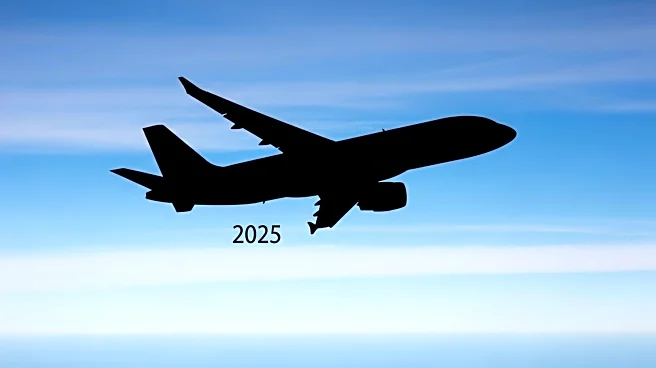What is the story about?
What's Happening?
A joint study by Oliver Wyman and the International Air Transport Association (IATA) projects that supply chain issues could cost airlines over $11 billion in 2025. The report highlights delays in aircraft and parts production, with a backlog of over 17,000 aircraft. Factors contributing to the delays include geopolitical instability, raw material shortages, and labor shortages. Airlines are forced to keep older models in operation, leading to increased fuel and maintenance costs. The study suggests several actions to alleviate the supply chain problems, including enhancing transparency and expanding repair capacity.
Why It's Important?
The projected financial impact on airlines underscores the critical role of supply chain efficiency in the aviation industry. Delays in aircraft production affect airlines' ability to meet rising passenger demand, potentially leading to higher operational costs and reduced profitability. The situation highlights the interconnectedness of global supply chains and the vulnerabilities exposed by geopolitical and economic disruptions. Addressing these challenges is vital for the sustainability and growth of the aviation sector, with implications for employment, travel accessibility, and economic activity.
What's Next?
Airlines and industry stakeholders may implement strategies to mitigate supply chain disruptions, such as diversifying suppliers and investing in advanced manufacturing technologies. Collaboration with OEMs and MROs could enhance supply chain visibility and reduce bottlenecks. Policymakers might consider regulatory measures to support the industry, including incentives for innovation and infrastructure development. The ongoing challenges could lead to shifts in industry practices, with a focus on resilience and adaptability in the face of global uncertainties.
Beyond the Headlines
The supply chain issues facing airlines reflect broader economic trends, including the impact of geopolitical tensions and resource scarcity on global industries. The situation may prompt discussions on the ethical and environmental implications of maintaining older aircraft, as well as the need for sustainable practices in aviation. Long-term shifts could include increased investment in green technologies and efforts to reduce the industry's carbon footprint. The challenges also highlight the importance of strategic planning and risk management in navigating complex global supply chains.















